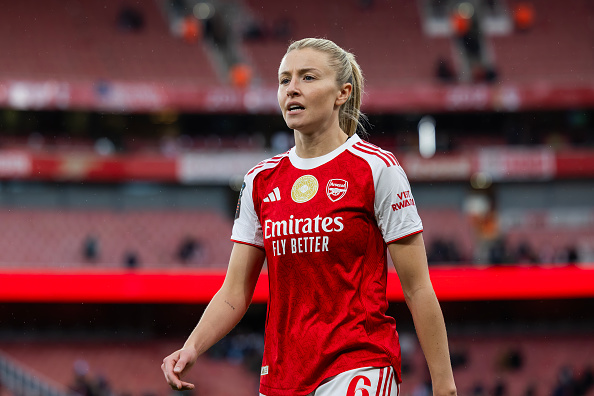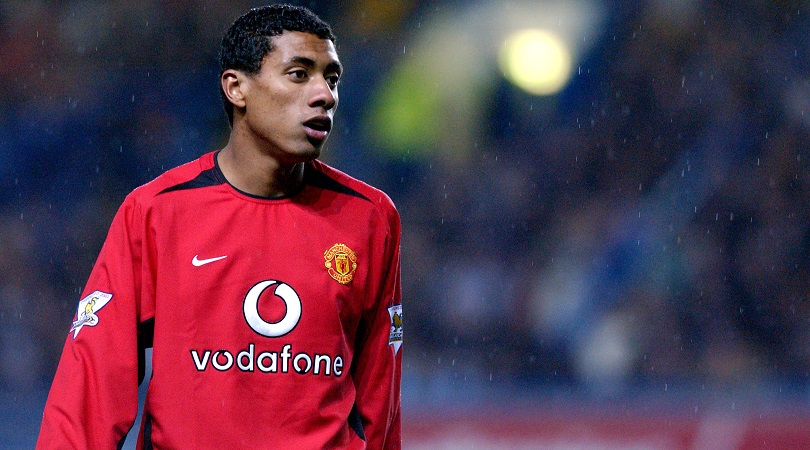
Post-World Cup signings
There's no shop window quite like the World Cup. Even in this age of number-crunching analytics and endless reams of video footage, players continue to earn club moves based on their performances on the biggest stage of all.
In this slideshow, we pick out 16 World Cup stars who were signed by Premier League clubs soon after the tournament...
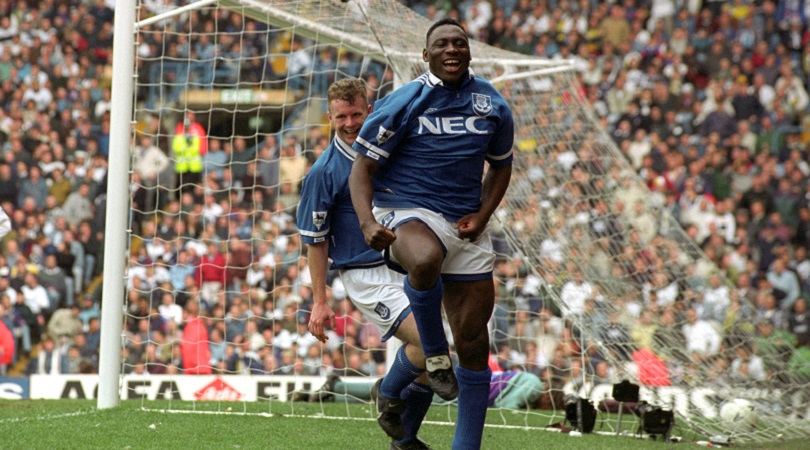
Daniel Amokachi (Everton, 1994)
One of the stars of Nigeria’s debut World Cup in 1994, Amokachi notched twice for the Super Eagles in the United States, including a brilliant solo goal against Greece. Everton forked out £3m to bring him to Goodison Park, but despite finding the net in his first game against Queens Park Rangers, Amokachi struggled to replicate his World Cup performances.
The Nigerian only managed two full campaigns on Merseyside but is still fondly remembered for bringing himself on in an FA Cup semi-final against Tottenham while Paul Rideout was receiving treatment, before going on to score twice.
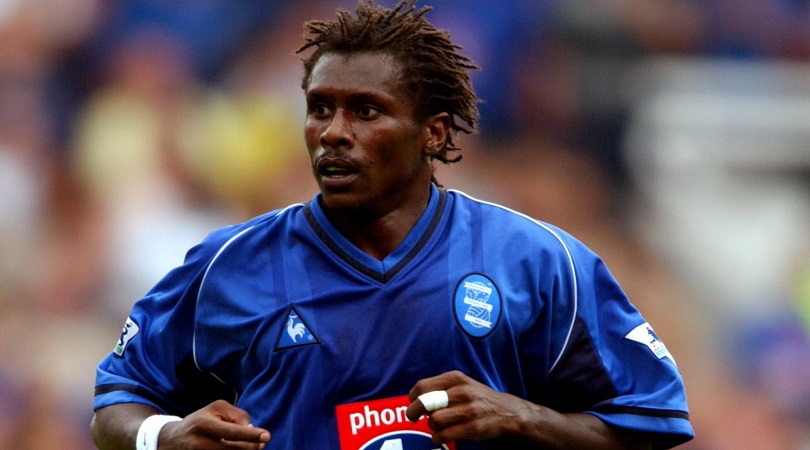
Aliou Cisse (Birmingham, 2002)
El Hadji Diouf and Salif Diao dominated the headlines following Senegal’s shock run to the World Cup quarter-finals, but both had already agreed to sign for Liverpool before a ball had been kicked in Japan and South Korea. Instead it was captain and defensive rock Cisse – currently in charge of his national team – who earned a Premier League move off the back of the tournament, signing for newly-promoted Birmingham.
Cisse’s robust style meant he racked up 10 yellow cards before the New Year. It was a tough time for the Senegalese in his personal life: in September 2002 he lost several family members to a ferry disaster off the coast of Gambia.
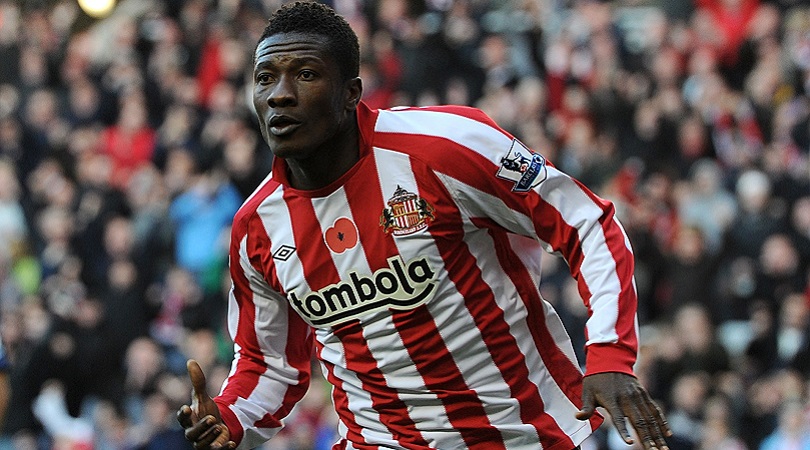
Asamoah Gyan (Sunderland, 2010)
Sunderland broke their transfer record to sign Gyan for £13m from Rennes in 2014, after a World Cup in which the Ghanaian scored three times but fluffed his lines at the pivotal moment. The striker missed a late penalty at the end of their quarter-final clash with Uruguay that would have seen the Black Stars become the first African side to reach the last four of a World Cup, and Ghana went on to lose the shoot-out.
He enjoyed better luck with the Black Cats, though, striking 11 times in the Premier League in his debut campaign – including one in a memorable 3-0 success at Stamford Bridge. He was soon on the move again, though, joining Al-Ain in the United Arab Emirates the following season.

Mustapha Hadji (Coventry, 1999)
The Moroccan made a name for himself at the 1998 World Cup with a fine goal against Norway and magnificent performance in the 3-0 win over Scotland. The Atlas Lions still exited at the group stage, but Hadji had done enough to scoop that year’s African Footballer of the Year award.
He also caught the attention of Gordon Strachan, who parted with £4m of Coventry’s cash to bring the attacking midfielder to Highfield Road. Teaming up with compatriot Youssef Chippo, Hadji went on to play 62 games for the Sky Blues before demotion in 2001 saw him join Aston Villa.
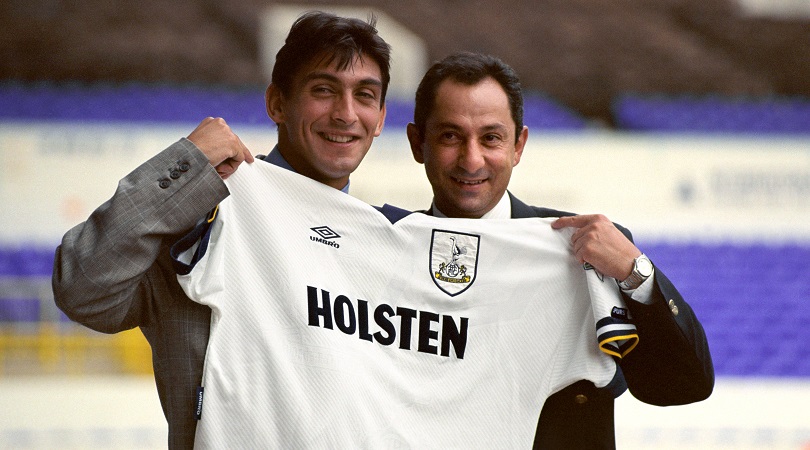
Ilie Dumitrescu (Tottenham, 1994)
Dumitrescu reached the pinnacle of his career at the 1994 World Cup with two goals and an assist in Romania’s 3-2 second-round win over Argentina. Acquired by Tottenham for £2.6m, despite favouring a move to either Italy or Spain, he was almost immediately engulfed in a scandal.
Accused by scandal-rag the News of the World of involvement with a sex worker, the Romanian was loaned out to Sevilla while the furore died down. Despite the claim proving false, he was sold to West Ham before work permit issues saw him become a free agent.
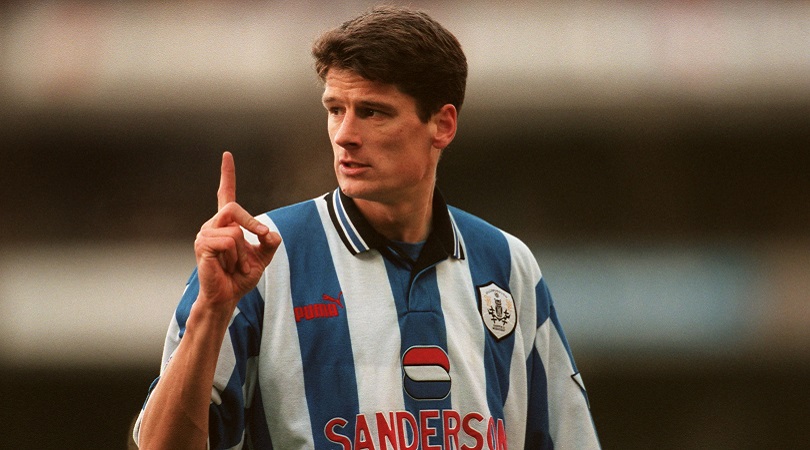
Wim Jonk (Sheffield Wednesday, 1998)
In his early years at Ajax, Jonk became known as “the man behind Bergkamp” thanks to his knack for delivering a killer through-ball to his fellow Dutchman. Their understanding was so telepathic that Inter purchased them as a pair in 1993, before Bergkamp joined Arsenal two years later.
Jonk had to wait until after France ’98 to earn his Premier League move, and by the time he landed in Sheffield after playing a prominent role in the Netherlands’ march to the semi-finals, some of the magic had gone. Jonk retired from the game after two injury-hit seasons in Yorkshire, during which time the Owls went down to the second tier.
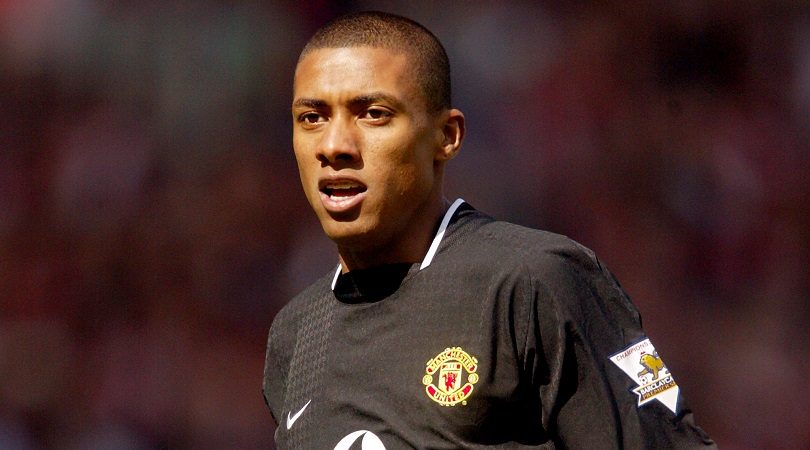
Kleberson (Manchester United, 2002)
A virtual unknown outside of Brazil before the 2002 World Cup, Kleberson’s tenacious performance against England in the quarter-finals caught the attention of clubs in the Premier League. Manchester United beat Leeds and Newcastle to his signature, although the midfielder refused to move until his girlfriend turned 16 and they could marry.
He was signed for £6.5m in summer 2003 and unveiled alongside a fellow newcomer – a young whippersnapper by the name of Cristiano Ronaldo. Hampered by injuries, Kleberson left for Besiktas two years later and eventually faded into obscurity.
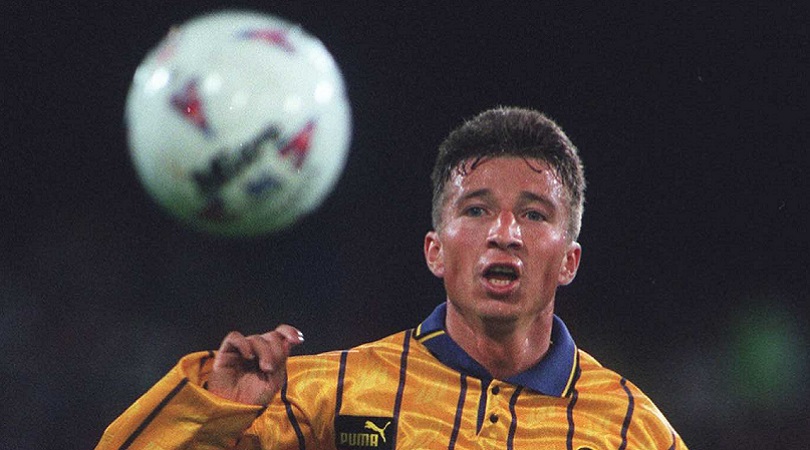
Dan Petrescu (Sheffield Wednesday, 1994)
The marauding full-back who shared his surname with Channel 4 teatime TV favourite Pet Rescue, Petrescu was another member of the Romania squad to arrive in England after their success at the 1994 World Cup, joining Sheffield Wednesday from Italian outfit Genoa.
Petrescu had starred at the World Cup but was guilty of missing Romania’s crucial penalty in their quarter-final defeat by Sweden. He recovered to star for Wednesday, though, before earning a move to Chelsea in 1995 – where he won the FA Cup, League Cup and Cup Winners’ Cup.
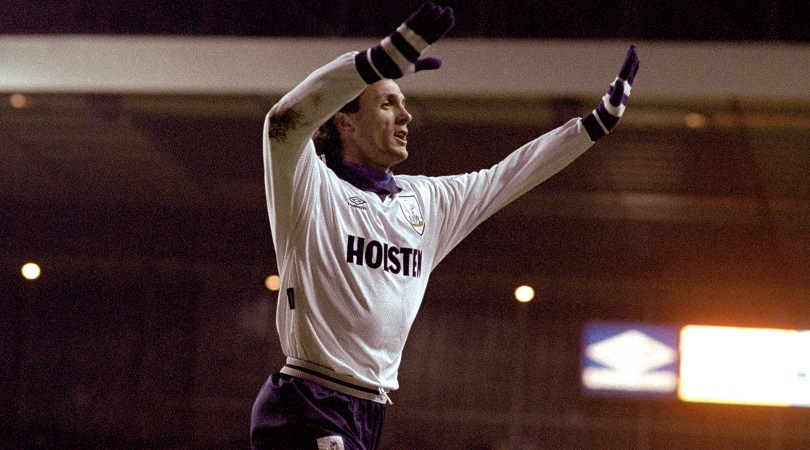
Gica Popescu (Tottenham, 1994)
Back in 1994, Romanians were very much in vogue for Spurs boss Ossie Ardiles. Having already bought compatriot Ilie Dumitrescu off the back of the World Cup, the Argentine manager persuaded bean-counter Alan Sugar to spend another £2.9m on fellow World Cup star Gheorghe Popescu.
Although the ex-PSV man lasted longer than both Dumitrescu and Ardiles, he left after just a single season at Tottenham. You could hardly blame him; his next destination was the Camp Nou and Barcelona, who handed him the captaincy almost immediately.
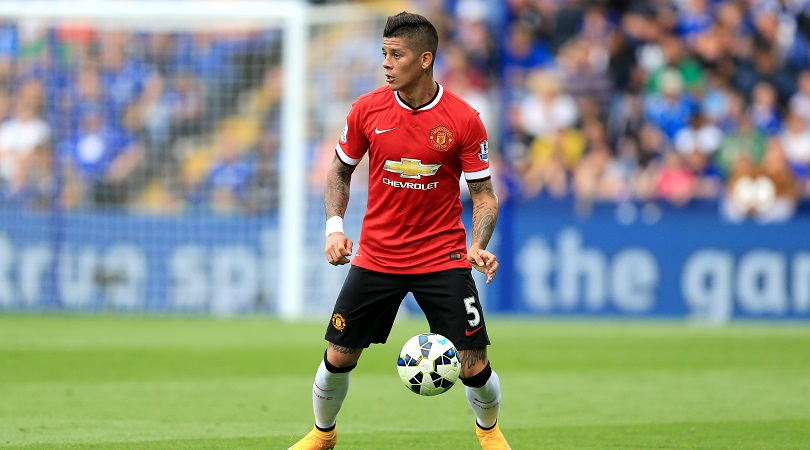
Marcos Rojo (Manchester United, 2014)
Rojo played an instrumental role in Argentina’s march to the final of the 20th edition of the World Cup in 2014, featuring six times for the Albiceleste and even popping up with the winner in their triumph over Bosnia-Herzegovina in the group phase.
Manchester United parted with £16m to acquire the defender from Sporting CP in a deal which saw Nani move in the opposite direction. Despite a bright start under Louis van Gaal, Rojo has since fallen out of favour under Jose Mourinho. Perhaps his winning goal against Nigeria in Russia 2018 might lead to another post-World Cup switch next month.
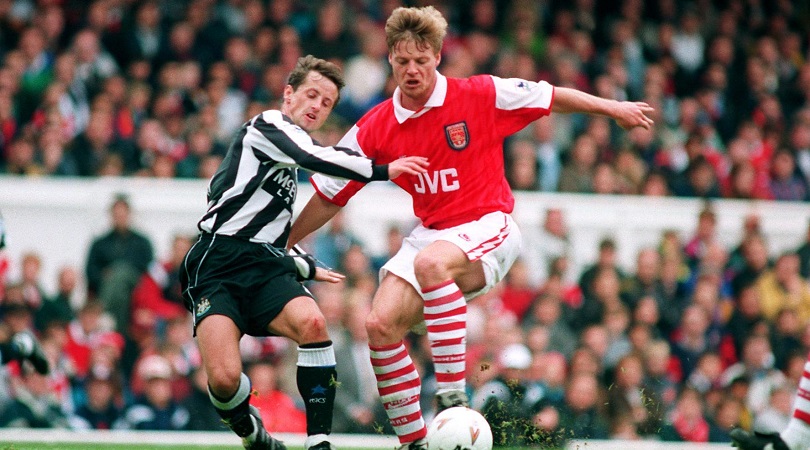
Stefan Schwarz (Arsenal, 1994)
George Graham landed Schwarz from Benfica after watching him shine for a Sweden side who finished third at the 1994 World Cup. Initially heralded as a playmaker ready to fill the void left by David Rocastle, Schwarz was much more of a water-carrier in reality.
He moved to Italy with Fiorentina the following season, sticking around in the Tuscan capital for three years before joining Valencia and then Sunderland. His departure from north London was significant in paving the way for the arrival of David Platt, who was snapped up from Sampdoria.
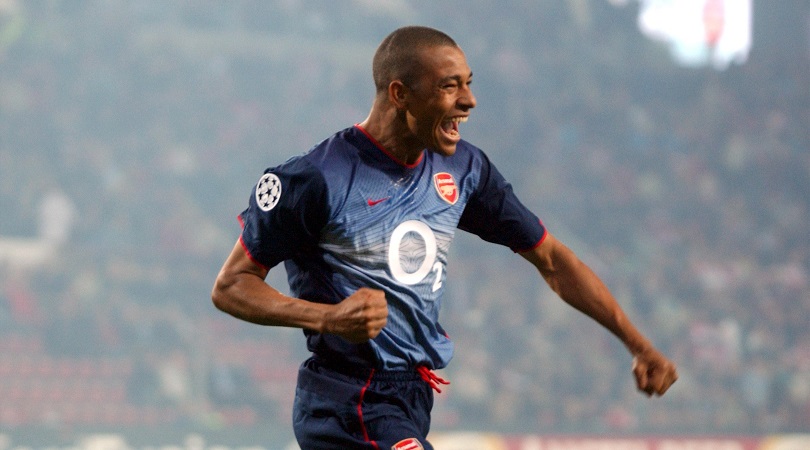
Gilberto Silva (Arsenal, 2002)
Part of a winning Brazilian midfield alongside Kleberson, Gilberto Silva went on to enjoy far more success than his Seleção counterpart in the Premier League. Adding some much-needed steel to a Brazil team built around the three Rs up front, Silva had Arsene Wenger’s attention from the off.
He arrived at Highbury in August 2002 and went on to become a key component of the Invincibles side that went unbeaten in 2003/04 – not bad for a holding midfielder who only ended up at the World Cup in Japan and South Korea because Roma’s Emerson sustained an injury just before the start of the competition.
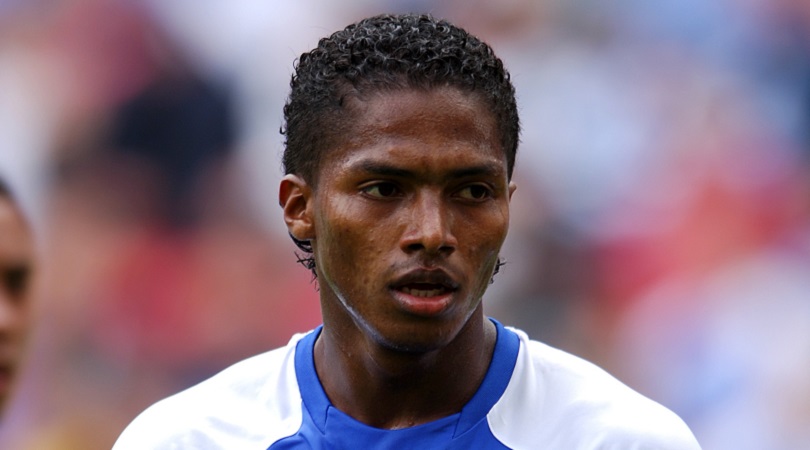
Antonio Valencia (Wigan, 2006)
The Manchester United stalwart first made his name with an Ecuador team who defied the odds to qualify for the knockout stage of the 2006 World Cup at the expense of Poland and Costa Rica. A winger who had spent the previous season on loan from Villarreal in the Spanish second tier, Valencia ended up on the six-man shortlist for the Best Young Player award in Germany.
He lost out to Cristiano Ronaldo, despite an attempt by disgruntled England fans to rig the vote, but won admirers on these shores and joined Wigan on the first of two season-long loans. The Latics sealed a bargain £5 million switch in 2008, before United brought him to Old Trafford the following campaign.
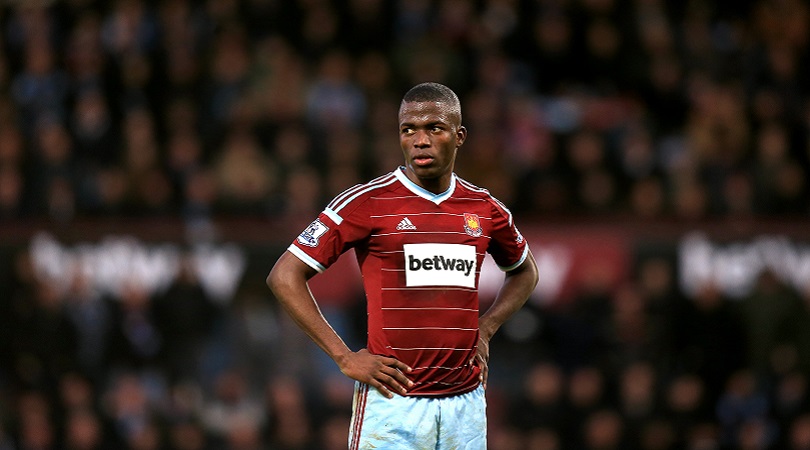
Enner Valencia (West Ham, 2014)
West Ham splashed out £12m on Valencia after he scored three times for Ecuador at Brazil 2014. It turned out the striker had already done some research on his new club, though, having watched Elijah Wood's hooligan flick Green Street for a 100% authentic taste of life in east London.
The Hammers fans’ support wasn’t enough to help Valencia get among the goals regularly, though, despite the striker netting three goals in his first seven league starts. Valencia bagged just 10 in 68 games before moving to Everton briefly on loan.
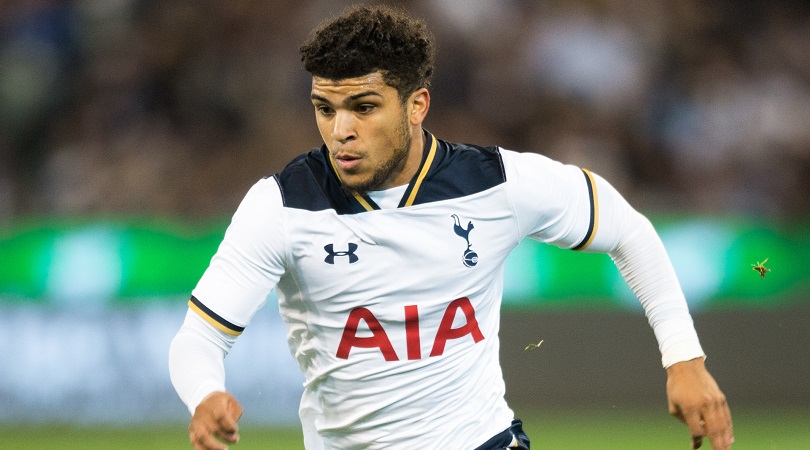
DeAndre Yedlin (Tottenham, 2014)
Yedlin was the breakout star of Jurgen Klinsmann’s experimental United States side of 2014, serving as an explosive impact sub in three crucial fixtures for the Americans. The speedy right-back set up a goal for Clint Dempsey in a crucial 2-2 draw with Portugal in the group phase, and returned to man-mark Eden Hazard out of the game in the second round against Belgium.
Tottenham fought off reported interested from Liverpool and Roma to land the athletic American, but Yedlin rarely got a chance in the first team. The speedy right-back was loaned out to struggling Sunderland and did enough to impress Newcastle, who duly purchased the defender for £5m in summer 2016.

Didier Zokora (Tottenham, 2006)
Ivory Coast qualified for the 2006 finals ahead of Cameroon but failed to progress past the first round after being drawn in the group of death alongside Argentina, the Netherlands and Serbia and Montenegro.
Midfielder Zokora still did enough to earn a transfer, however, joining Tottenham for just over £8m and immediately endearing himself to the club’s fans by claiming he rejected an offer from Arsenal in order to move to White Hart Lane. The tough tackler went on to win the League Cup in 2008, helping Spurs beat the Gunners in the last four.
Greg Lea is a freelance football journalist who's filled in wherever FourFourTwo needs him since 2014. He became a Crystal Palace fan after watching a 1-0 loss to Port Vale in 1998, and once got on the scoresheet in a primary school game against Wilfried Zaha's Whitehorse Manor (an own goal in an 8-0 defeat).
 Join The Club
Join The Club











